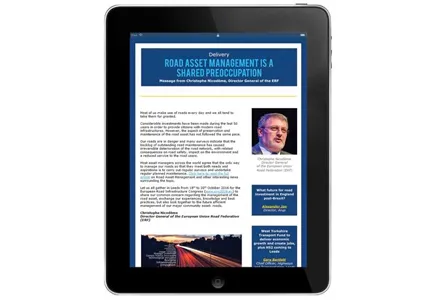Europe’s contractors’ association, the FIEC, has criticised the EU’s new public procurement package, describing it as a missed opportunity. “The EU institutions did not seize the opportunity to solve one of the most severe shortcomings of the existing public procurement directives,” said Ulrich Paetzold, FIEC director general. “I mean by that the identification and treatment of abnormally low tenders, which is a real curse in the construction sector.”
Today’s adoption by the European Parliament of the thre
January 20, 2014
Read time: 3 mins
Europe’s contractors’ association, the FIEC, has criticised the EU’s new public procurement package, describing it as a missed opportunity. “The EU institutions did not seize the opportunity to solve one of the most severe shortcomings of the existing public procurement directives,” said Ulrich Paetzold, FIEC director general. “I mean by that the identification and treatment of abnormally low tenders, which is a real curse in the construction sector.”
Today’s adoption by the European Parliament of the three directives of the public procurement package (classical, utilities and concessions) opens the way for entry into force of the new rules before the European elections, with a two-year transposition period. “In any case, these new rules will not change the world,” said Paetzold, “apart from maybe the brand new concessions directive, which now needs to prove its worth. Above all, we regret that the EU legislators seem to underestimate the negative consequences of abnormally low tenders on quality and sustainability to the detriment of both the public authorities and serious, law-abiding private companies. Cheap can prove to be very expensive in the end!” he added.
There have been a number of major projects in Europe offered to the bidders making lowest tenders, only for the projects then to hit serious financial issues later on. In some instances the contractors have stopped working and projects have had to be re-awarded, while in others additional financial support has had to be found, at some extra cost.
However, the FIEC said that it particularly welcomes all measures aimed at reducing the administrative burden of the procedure, which would help SMEs in particular. “We call on our national Member Federations to be extremely vigilant during the transposition process with regard to changes in social aspects, sub-contracting and specific details in the procedure such as time periods for submitting an offer, as they might prove to be counterproductive,” said Paetzold. “In particular the extension of the scope of 'in-house' and public-public cooperation might lead to unfair competition and reduced markets for private enterprise, if abused.”
Finally, FIEC encourages contracting authorities in the Member States to make the best use of the “best price-quality ratio” award criterion for the sake of quality and sustainability of construction works. “Price as the only award criterion should have been forbidden for complex procurement, such as construction,” added Paetzold.
Today’s adoption by the European Parliament of the three directives of the public procurement package (classical, utilities and concessions) opens the way for entry into force of the new rules before the European elections, with a two-year transposition period. “In any case, these new rules will not change the world,” said Paetzold, “apart from maybe the brand new concessions directive, which now needs to prove its worth. Above all, we regret that the EU legislators seem to underestimate the negative consequences of abnormally low tenders on quality and sustainability to the detriment of both the public authorities and serious, law-abiding private companies. Cheap can prove to be very expensive in the end!” he added.
There have been a number of major projects in Europe offered to the bidders making lowest tenders, only for the projects then to hit serious financial issues later on. In some instances the contractors have stopped working and projects have had to be re-awarded, while in others additional financial support has had to be found, at some extra cost.
However, the FIEC said that it particularly welcomes all measures aimed at reducing the administrative burden of the procedure, which would help SMEs in particular. “We call on our national Member Federations to be extremely vigilant during the transposition process with regard to changes in social aspects, sub-contracting and specific details in the procedure such as time periods for submitting an offer, as they might prove to be counterproductive,” said Paetzold. “In particular the extension of the scope of 'in-house' and public-public cooperation might lead to unfair competition and reduced markets for private enterprise, if abused.”
Finally, FIEC encourages contracting authorities in the Member States to make the best use of the “best price-quality ratio” award criterion for the sake of quality and sustainability of construction works. “Price as the only award criterion should have been forbidden for complex procurement, such as construction,” added Paetzold.








